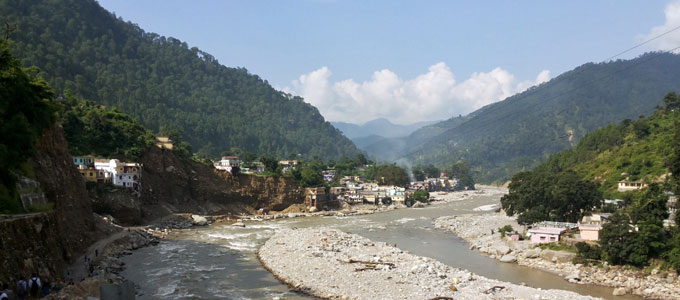Alaknanda and Satluj basins – river basin optimisation study

Client: World Bank (at the request of the Ministry of Power, Government of Uttarakahand and the Government of Himachal Pradesh)
Location: Himachal Pradesh, India
Date: February 2007 - September 2007
Identifying the benefits of a coordinated basin-wide approach to hydropower developments for improved economic, environmental and social outcomes.
Background
Project-by-project approaches to hydropower development do not fully consider power-system-wide implications of new projects on generation capacity or water quality, the potential increase in severity of social or environmental impacts, or long-term planning concerns at the basin level, such as climate change and changed hydrological patterns.
Entura was engaged to model the differences between project-by-project and river-basin-wide approaches using the Indian Satluj and Alaknanda river basins as case studies, and to build recommendations for how a comprehensive and systematic basin-wide approach can optimise economic and engineering outcomes and ensure improved planning and management of environmental and social impacts.
Solution
Entura provided all the multidisciplinary specialist expertise required to identify and model technical and operational impacts, as well as environmental and social implications of multi-project development. The key findings were able to demonstrate the benefits of hydropower development at the basin-wide level.
Modelling of engineering, economic, hydrological, environmental and social issues identified a range of benefits from a basin-wide approach, including:
- enhanced coordination and data sharing and yield estimation
- optimised production basin wide to increase overall power production and revenue
- shared infrastructure to lower overall costs and environmental and social impacts
- minimised sedimentation and improved overall water quality
- strengthened flood risk assessment, flood forecasting and warning
- improved communication channels to involve local communities, for example in basin-wide planning and impact monitoring.
The modelling showed that optimising just two adjacent projects in the Alaknanda basin, for example, would have the effect of generating an additional 230GWh annual energy output, equivalent to some USD14.5 million.
Outcome
Entura created real value by identifying key issues, demonstrating the benefits with clear evidence, and offering pathways for future hydropower development in other river basins.
Stakeholders have shown strong support for coordinated data collection and analysis and are actively considering the development of an independent river basin development authority. Developers and state governments have attempted to optimise projects along stretches of these rivers. At the national level, the Indian government instituted the National Ganga River Basin Authority to comprehensively manage the Ganges basin, recognising river-basin-wide planning as the appropriate management strategy.




